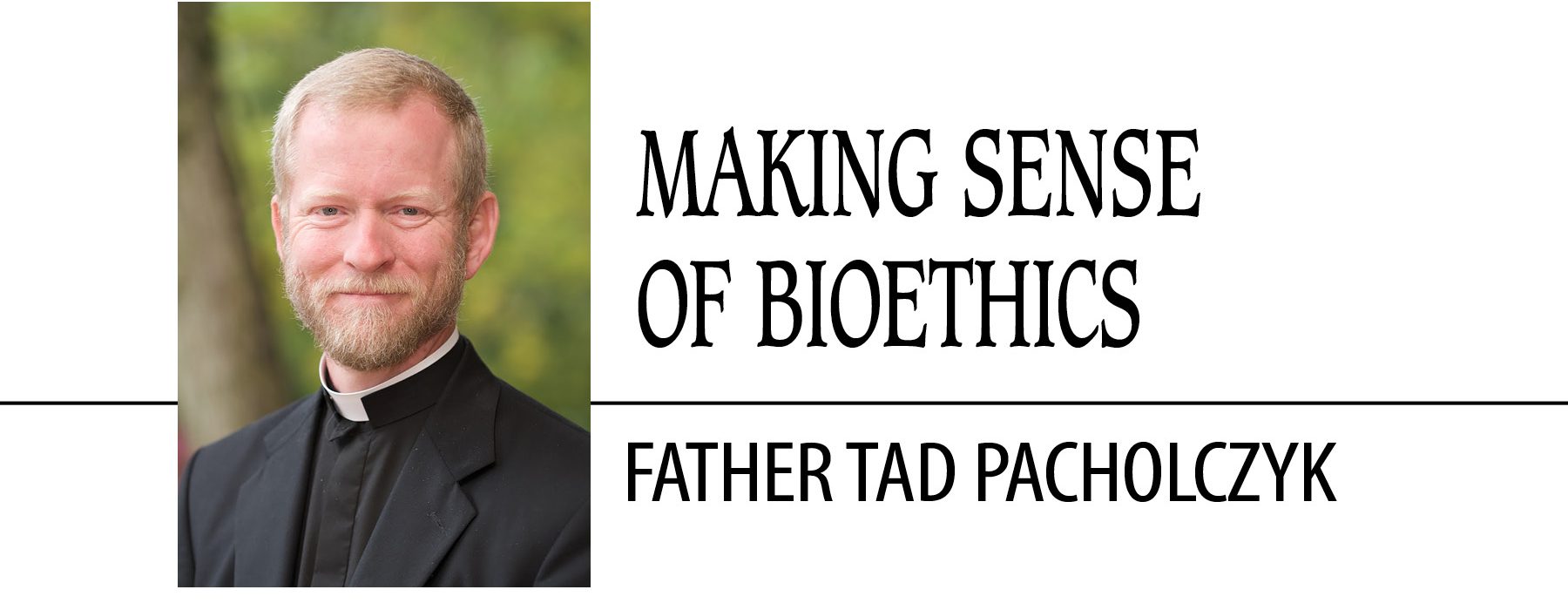January 8, 2020 // Perspective
The foxes and the henhouse
Probably the biggest bioethics story of 2019 involved Dr. Jankui He — known to his associates as “JK” — a Chinese scientist who employed a new technology called CRISPR/Cas9 to produce the world’s first gene-edited babies. JK made genetic changes to two little girls, Lulu and Nana, when they were early stage embryos, attempting to modify a receptor for HIV to confer resistance to a possible future infection from the virus. He publicly announced the birth of the girls at an international scientific conference near the end of 2018, and as the news rapidly spread, many scientists and commentators expressed shock and dismay over his “designer baby” experiments.
Chinese provincial authorities quickly became aware of his activities as well, and he was placed under house arrest upon his return from the conference. In the closing days of 2019, a secret trial was held, and he was sentenced to three years in prison for producing the CRISPR babies. The trial proceedings concluded that JK had “rashly applied gene editing technology to human assisted reproductive medicine.”
The verdict reached by the Chinese court raises complex questions that must be confronted: What does it mean to “rashly apply” a new technology like human gene editing? Who should determine if a particular use is “rash” or “reasonable”?
Dr. Rita Vassena, a member of the Executive Committee of the European Society of Human Reproduction and Embryology, framed the ethical concerns around JK’s case this way: “As the current scientific consensus indicates, the use of CRISPR/Cas9 in human embryos destined to give rise to a pregnancy is, at this stage, unjustified.”
She couches her ethical analysis, as many scientists do, in terms of the “current scientific consensus.” But such “consensus” is an extremely malleable concept. It also conveniently implies that scientists themselves can set up their own ethical rules and provide regulatory oversight for scientific research, so that they, in effect, become the foxes guarding the henhouse. The saga that has unfolded during the last year surrounding the gene-editing experiments of JK has demonstrated, if nothing else, how self-serving and ineffective a community of scientists can be as they try to exercise the role of lawyer, judge and jury of their own ethical standards.
Even though we should be justifiably alarmed at Chinese courts meting out jail time in secret to scientific researchers, the fact remains that it was a government-controlled court that finally put some teeth into ethical regulations. In the West, to have governments, courts or major institutions take any action whatsoever in a case like JK’s seems at present inconceivable. Instead, in American and European universities and industrial settings, we often encounter feeble, meandering discussions about research ethics, along with a proliferation of rubber-stamping “ethics review panels.” These often consist of hand-picked members devoid of strong ethical or religious training and viewpoints. Such panels give increasingly systematic cover for an ever-expanding range of unethical research practices.
Whether it’s giving a green light to use stem cells derived from human embryos or tissues from intentionally aborted fetuses for research, or to employ cloning technology to produce new human life, or to manufacture three parent embryos, many biomedical researchers have come to rely so much on ethical rubber stamps that they just venture ahead, confident that they won’t be “fenced in” by ethical considerations.
JK’s gene-editing experiments and China’s strong reaction have at least managed to bring the ethical concerns momentarily back into the spotlight. “I think a jail sentence is the proper punishment for him,” said Wang Yuedan, a professor of immunology at Peking University, in comments he shared with the New York Times. “It makes clear our stance on the gene editing of humans — that we are opposed to it… signaling that there is a bottom line that cannot be broken.”
Yet this is precisely the difficulty in biomedicine today: namely, that there are few, if any, “bottom lines” when it comes to research ethics. The lines have become exceedingly flexible, if the price is right or if a particular political administration is amenable to redrawing them.
While there isn’t any perfect solution to ensure scientists never engage in unethical research — and the involvement of communist secret courts is certainly far from ideal — we clearly need to promote, fund and regulate modern biomedical research in a way that prioritizes ethics over expediency.
This means establishing significant sanctions and funding restrictions when ethical violations by researchers occur. It also means including alternative viewpoints on ethics review panels, especially those informed by longstanding religious and philosophical traditions, like that of the Catholic Church, which offer the important perspective that certain ethical lines are not able to be moved or redrawn. This kind of input can contribute much to the kinds of discussions that need to occur, and can afford an important counterbalance to any foxes who desire to keep guard over the ethical henhouse.
Rev. Tadeusz Pacholczyk, Ph.D., earned his doctorate in neuroscience from Yale and did post-doctoral work at Harvard. He is a priest of the diocese of Fall River, Massachusetts, and serves as the director of education at The National Catholic Bioethics Center in Philadelphia. See www.ncbcenter.org.
The best news. Delivered to your inbox.
Subscribe to our mailing list today.






